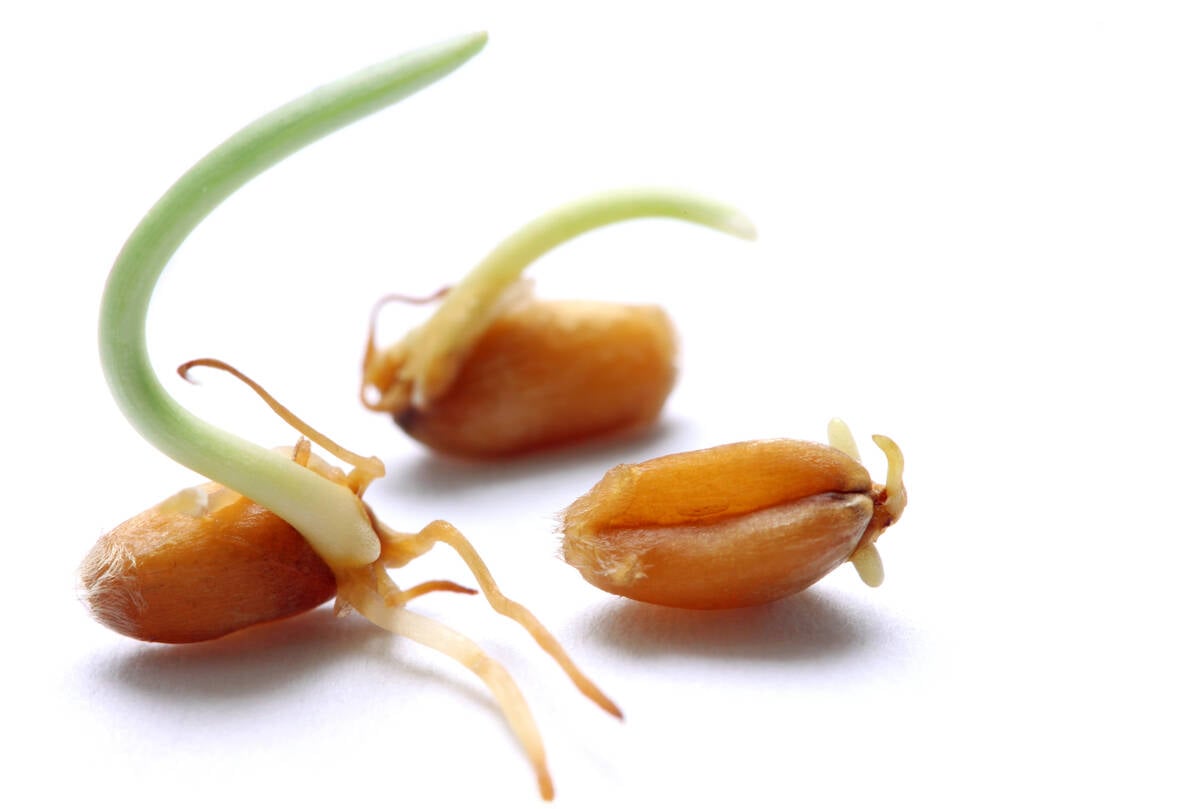Special crops shippers located on Canadian Pacific Railway lines are facing steep rail freight hikes this year.
CP has increased rates for shipping peas, beans, lentils, chickpeas, buckwheat, canaryseed and sunflower seed by 4.5 percent to Thunder Bay and 5.5 percent to Vancouver. That compares to an average one percent increase for cereal and oilseeds.
Breanne Feigel, spokesperson for the railway, said the rate hike puts CP’s rates for moving special crops in line with what Canadian National Railway charges its customers.
“The recent rate increase reflects the competitive transportation environment that our railway is involved in,” she said.
Read Also

Manitoba farmers fight sprouted wheat after rain
Rain in mid-September has led to wheat sprouting problems in some Manitoba farm fields.
CN’s rates rose one percent across the board for all grain, oilseeds and special crops as of Aug. 1.
Murad Al-Katib, president of the Canadian Special Crops Association (CSCA), said CP’s rate hike comes on top of a 10 to 20 percent increase in ocean freight rates and a 10 percent increase in transloading fees at ports on the West Coast.
“The freight cost escalation continues to be a bitter pill to swallow for the special crops industry,” he said.
In 2001, it cost his firm $86 US per tonne to ship a load of pulses to Colombo, Sri Lanka. Today, the same trip would cost about $140 per tonne, a 63 percent increase in the freight bill.
Al-Katib said the CSCA and Pulse Canada will be contacting CP for an explanation for why special crops rates are rising more dramatically than other crops.
“It’s certainly a bit concerning to see that type of disparity,” he said.
Feigel said CP welcomes the dialogue.
“CP has a good relationship with all of these groups and I’m sure we’ll be engaging in conversation with them,” she said.
Garth Patterson, executive director of Saskatchewan Pulse Growers, said CP’s rate hike is bad news for everybody in the special crops industry.
“Any time freight rates go up, growers get concerned.”
Canada exports most of the pulses it produces, which means growers will end up paying the five percent increase out of their pockets.
He wonders if any perks will accompany the rate hikes.
“I would be interested to learn whether or not special crops shippers can expect any improvements in the level of service,” said Patterson.
Al-Katib said there is a dire need for more consistent and reliable service from the railways, which supersedes shipper concerns about rising freight rates.
That said, CP’s rate hike is nothing to be sneezed at. While a five percent increase may not sound like much, it means an extra $2 per tonne and when shipping a crop like peas, that can have a big impact on profitability.
“That’s a very significant portion of the pipeline margin,” he said.
“Processors are certainly going to feel it.”















